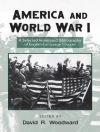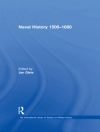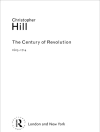Who were early modern chaplains and what did they do? Chaplains are well known to have been pivotal figures within early modern England, their activities ranging from more conventionally religious roles (conducting church services, offering spiritual advice and instruction) to a surprisingly wide array of literary functions (writing poetry, or acting as scribes and editors). Chaplains in early modern England: Patronage, literature and religion explores the important, but often neglected, contributions made by chaplains of different kinds – royal, episcopal, noble, gentry, diplomatic – to early modern English culture. Addressing a period from the late sixteenth to the early eighteenth centuries, it focuses on chaplains from the Church of England, examining their roles in church and politics, and within both domestic and cultural life. It also shows how understanding the significance of chaplains can illuminate wider cultural practices – patronage, religious life and institutions, and literary production – in the early modern period.
表中的内容
1. Introduction – Hugh Adlington, Tom Lockwood, Gillian Wright
2. The roles and influence of household chaplains, c. 1600–c. 60 – Kenneth Fincham
3. Chaplains to the Elizabethan nobility: Activities, categories and patterns – David Crankshaw
4. Episcopal chaplains and control of the media, 1586–1642 – Mary Morrissey
5. Chaplains to embassies: Daniel Featley, Anti-Catholic controversialist abroad – Hugh Adlington
6. Poetry, patronage and cultural agency: the career of William Lewis – Tom Lockwood
7. ‘His lordships first, and last, CHAPLEINE’: William Rawley and Francis Bacon – Angus Vine
8. Richard Corbett and William Strode: Chaplaincy and verse in early seventeenth-century Oxford – Christopher Burlinson
9. The Isham family and their clergy – Erica Longfellow
10. A chaplain and his patron: Samuel Willes and Lord Huntingdon – William Gibson
11. The reluctant chaplain: William Sancroft and the later Stuart Church – Grant Tapsell
Select bibliography
Index
关于作者
Gillian Wright is a Lecturer in English Literature at the University of Birmingham












